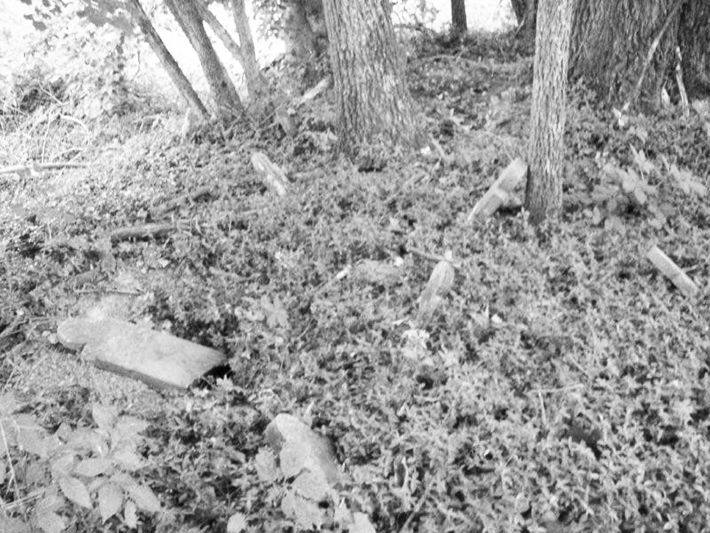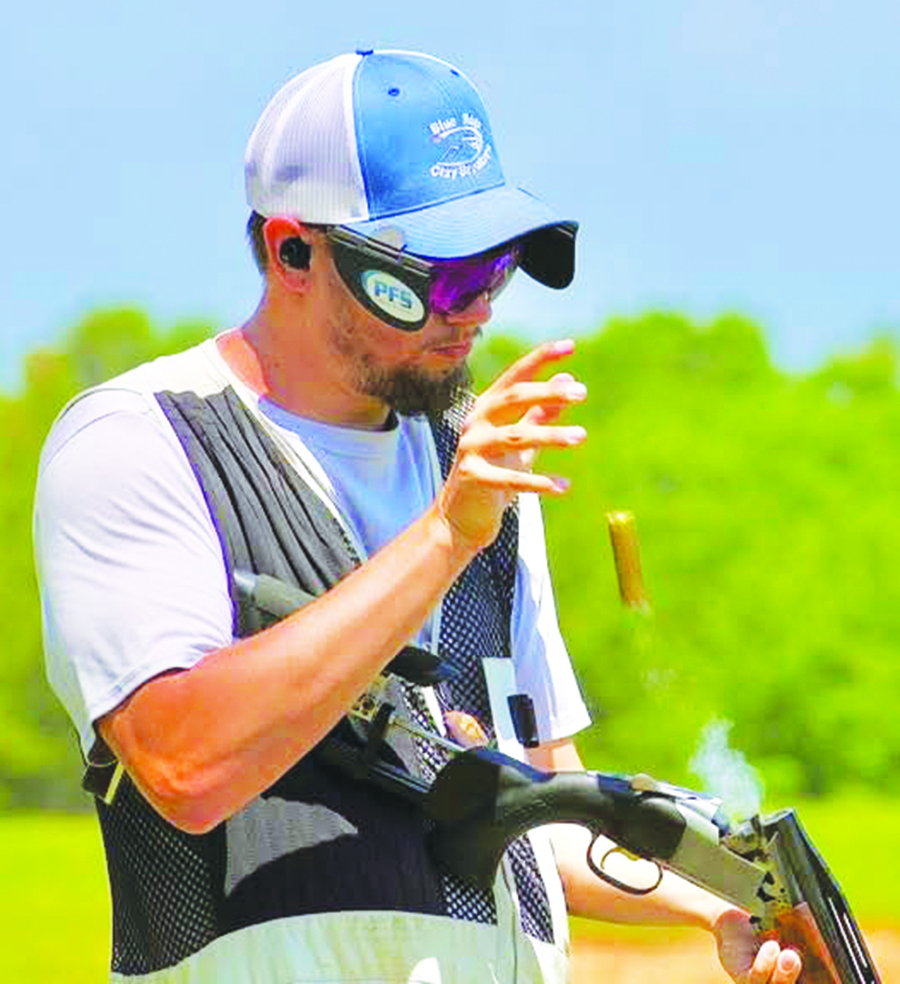The Literary Corner: Renegade Writer’s Guild
Published 12:28 pm Tuesday, May 14, 2024

- The old Holman Family Cemetery off Ratledge Road is in disarray.
|
Getting your Trinity Audio player ready...
|
Bluegrass Immersion
By Stephanie Williams Dean
I grew up playing violin in the orchestra in elementary school but now am learning to play fiddle.
Trending
The difference between the two, violin and fiddle, is almost nothing more than the type of music you’re playing. Classical enthusiasts claim the violin and the bluegrass musicians refer to the instrument as a fiddle. The instrument could be classified according to the sound made and items dealing with construction such as a rounded or flat bridge.
Years ago, while at a jam in Mt. Airy, I was jokingly told, “Don’t come up here calling that a violin.” That was probably my initial introduction to relearning fiddle. But unfortunately, I didn’t stick with it. I’m now relearning with serious intent.
To relearn, I started out playing classical music by default. An adult beginner’s class was offered through the Salisbury Symphony so I signed up. Finally, there was a place and people with whom to relearn. There I learned my strings and notes again. After completing Violin I and II, no further group classes were offered, and I was back to square one.
But after making a promise to myself to stick with it no matter what, I traded in my student violin for an old, German fiddle on which I could produce higher-quality sound. That certainly increased my enjoyment. But sound has a lot to do with who’s playing the instrument. A proficient fiddler can make any fiddle sound great. Relearning is a slow process – I didn’t sound much better even after purchasing a new fiddle. And this brain is an old one.
But then I learned of new information that was most fortuitous. After breaking a string, I visited our local music store on the square. Here I learned two things. First – we have a great music resource right here in town. And it was here where I first learned of a local bluegrass jam that welcomed beginners. Well-known musicians, John and Lynn Powell, have a reputation for welcoming new players – including those just learning. So, as it turned out, my introduction to the fiddle and bluegrass has once again, been by default. I wanted to go where I could play with other people.
Raised in Nashville where I once believed both country and bluegrass originated, I thought surely, I already knew some bluegrass. That proved negative on both accounts. So far, I’ve recognized very few songs – there’s a big learning curve there. But I’m amazed at how quickly I’ve come to love the music. I’m still confused about the difference between genres and what’s referred to as bluegrass, progressive bluegrass, folk, Americana, mountain music, and others. Not that it matters, but my brain seems to want to understand each.
Trending
Anyway, I’m having fun playing and am committed to staying with it. I listen to John and Lynn’s bluegrass CDs at home and when driving my car. And in my free time, I look up new songs on YouTube to learn faster. Songs are easier to learn if you know the tunes. I’m slowly branching out and participating in additional jams around the county.
Stay tuned. I’m so serious about it – I’m referring to it as my Bluegrass Immersion Program.
Isaac Holeman, Patriot
By Linda H. Barnette
Another one of my ancestors who fought in the Revolutionary War was Isaac Holeman Sr or Holman, spelled both ways. He was born around 1720 in Shenandoah County, Colony of Virginia, Son of Daniel and Rachel Johnson Holeman. They and their other 9 children eventually moved to what is now Rowan County,
Isaac married Mary Benton Hardy in 1749 in Wilkes County, NC. Both Isaac and Mary signed the deed when they sold property in1782, but she was apparently deceased when he bought more land in 1798. They were members of Bear Creek Baptist Church, and their names are on the old church records.
In my work as a volunteer in the Davie County Public Library’s “People, Not Property” project, I have found several slaves mentioned in Isaac’s will. He was obviously very well off, owning a grist mill and a tavern in the area remembered today as Holman’s Crossroads.
Mary and Isaac had 14 children, with 13 surviving until the time of his death and mentioned in his will. He died in May, 1808 at his plantation in Rowan County (now Davie) and is buried in the Holeman Family Cemetery on Ratledge Road.
In one article I read for this article I found a reference to the old graveyard. It is located on the former Pinchback land that I mentioned on Ratledge Road. The writer says that the grave site is in very sad shape; the old tombstones are huddled together under a small grove of trees.” Now there is a fence at the road so that people cannot go up the road.
My relationship to Isaac comes through his son Jacob who married Lydia Pinchback, the parents of Mary Holeman, who married my third great-grandfather, Ashley Dwiggins.
From my research, it seems that many people in those days, our ancestors, risked life and property for the cause of liberty!
Memory Lane
By: E. Bishop
A few weeks ago, my husband and I rode down a country road, past acres and acres of those beautiful yellow fields of canola brightly shining even in the misty rain, past those barn silos no longer used to store that grain needed for the cattle that once roamed on that farm, and past those old tobacco barns no longer in use either. The ride was a little sad thinking about what used to be but at the same time nostalgic and beautiful that this long patch of land is still serving an agricultural purpose. We were on our way to see a beautiful ninety-four-year-old lady that wanted another drawing done of a house she had once lived in.
While visiting, this sweet woman moved slowly around on her walker pointing out pictures on her walls of her relatives, talking about her younger years, and how things were not so good for her now. She especially liked talking about the houses she had lived in. As two of her relatives were cleaning her house, I wondered how long she would be able to still live at home. There are a lot of emotions going on when you have time on your hands to think, as she does. However, she did seem content knowing that life is a mixture of bitter and sweet and that she has to deal with her present situation.
Like her, I believe we all reminisce about those kind of things also, especially as we get older. Yesterdays seem better than today. Some people even will go as far as to create lore and legend from how it was when they grew up. I don’t believe things were better then, kids weren’t better or worse then, life was not better yesterday; it was just different than it is today. We can’t let nostalgic memories become the glue that keeps us in the past. We just need to appreciate the past but live life in the present. Live in the moment, take the time to appreciate where you are, what you’re doing and who is with you for the journey.
Easier said than done, you say. Of course it is. Everyone has different experiences in life, some good and some not so good. Sometimes, it can be hard to make sense of your past, hard to keep those negative experiences or thoughts out of your mind. As C.S. Lewis stated, we are half spirit, half animal. We have an angel on one shoulder and the devil on the other; there has to be a good balance. I recommend a book by N.C. native Dr. Ski Chilton (with Dr. Margaret Rukstalis and A.J. Gregory) “The Rewired Brain,” “Free Yourself of Negative Behaviors and Release Your Best Self.”
May is mental health awareness month with green (my favorite color) being the color to wear to show support. This designation is to help address the challenges of millions of people living with mental health conditions. NAMI, the National Alliance on Mental Illness, works to get rid of the stigma attached to this very real health issue. They provide support, education and advocates for public policies that prioritize the well-being of individuals and families affected by mental illness. Throughout May, NAMI encourages you to #TakeAMentalHealthMoment.
Our President issued “A Proclamation on National Mental Health Awareness Month, 2024.” It states, in part, that “being able to get health care when you need it is essential to living a full, productive, and healthy life – that goes for mental health care too.” Help support that effort.
Like my elderly friend out in the country, let’s share the memories, learn from them, and help each other live in the moment along the way.




